Effective pain management is essential when caring for cats with FIP and ensuring proper FIP care. By customizing pain relief strategies to each cat's individual needs, owners and veterinarians can greatly improve their comfort, reduce stress, and support overall health and quality of life during treatment.
Improving Quality of Life for Cats with FIP
Pain Management Strategies
The difficult and often fatal disease known as Feline Infectious Peritonitis (FIP) affects cats worldwide, posing significant challenges for both pet owners and veterinary professionals. Exploring holistic methods of FIP care is vital as caregivers seek ways to improve the lives of feline companions suffering from this complex illness. Enhancing a cat's quality of life during FIP treatment involves multiple strategies, including effective pain management to alleviate discomfort, fostering calm and nurturing environments that reduce stress, and providing consistent emotional support to strengthen the human-animal bond. By addressing both physical and psychological needs, caregivers can help cats navigate the challenges of this disease. This article delves into these measures in depth, offering practical guidance and insights for owners and veterinary teams dedicated to comprehensive FIP care.
|
|
|
|
Pain Management Strategies
Pharmaceutical Interventions
Veterinarians may prescribe various medications to alleviate pain and discomfort associated with FIP. These may include:
- Non-steroidal anti-inflammatory drugs (NSAIDs)
- Opioid analgesics for severe pain
- Gabapentin for neuropathic pain
It's essential to work closely with a veterinarian to determine the most appropriate pain management regimen for your cat.
Alternative Therapies
Complementary approaches can be beneficial when used in conjunction with conventional treatments:
- Acupuncture to stimulate natural pain-relieving mechanisms
- Massage therapy to reduce muscle tension and promote relaxation
- Cold or heat therapy for localized pain relief
Nutritional Support
Proper nutrition plays a vital role in managing pain and supporting overall health. Consider:
- High-quality, easily digestible diets
- Omega-3 fatty acid supplementation for anti-inflammatory effects
- Appetite stimulants if necessary
Consult with a veterinary nutritionist to tailor a diet plan that meets your cat's specific needs.
|
|
|
|
Creating Comfortable Living Spaces
A cat's environment plays a critical role in their overall quality of life, particularly when managing FIP and providing comprehensive FIP care. Creating a calm, comfortable, and stress-free living space can help reduce anxiety, support emotional well-being, and promote better health outcomes during treatment.
Temperature Control
Cats with FIP may have difficulty regulating their body temperature. Ensure their living area is:
- Warm and draft-free
- Equipped with soft, heated beds or pads
- Away from air conditioning vents or cold windows
Accessible Resources
Make essential resources easily available to minimize stress and discomfort:
- Place food, water, and litter boxes in easily accessible locations
- Provide shallow dishes for food and water if your cat has difficulty bending
- Consider using low-sided litter boxes for easier entry and exit
Quiet Retreats
Create peaceful spaces where your cat can rest undisturbed:
- Set up cozy hiding spots using boxes or cat caves
- Designate a quiet room away from household traffic
- Use pheromone diffusers to promote a sense of calm
|
|
|
|
Emotional Support: Owner's Role
The emotional bond between a cat and their owner is a powerful tool in improving quality of life, especially during treatment with GS 441524 Powder. Your support and care can make a significant difference in your cat's well-being.
Quality Time
Spend dedicated time with your cat each day:
- Engage in gentle play sessions if your cat is up for it
- Offer soothing brushing or grooming
- Simply sit quietly together, providing a comforting presence
Positive Reinforcement
Encourage positive behaviors and experiences:
- Use treats or praise to reward medication compliance
- Celebrate small victories in your cat's daily routine
- Maintain a cheerful and calm demeanor around your cat
Monitoring and Communication
Stay attuned to your cat's needs and communicate effectively with your veterinary team:
- Keep a daily log of your cat's symptoms, appetite, and behavior
- Learn to recognize signs of pain or discomfort in cats
- Maintain open communication with your veterinarian about any changes or concerns
|
|
|
|
Conclusion
Improving the quality of life for cats with FIP requires a multifaceted approach that addresses physical comfort, environmental factors, and emotional well-being. By implementing comprehensive pain management strategies, creating a supportive living space, and providing unwavering emotional support, cat owners can significantly enhance their feline companions' comfort and happiness. Remember that each cat's journey with FIP is unique, and working closely with a veterinary team is crucial for developing a tailored care plan. With dedication, love, and appropriate interventions, it's possible to ensure that cats with FIP experience comfort, dignity, and joy in their daily lives.
FAQ
1. Q: How can I tell if my cat with FIP is in pain?
A: Signs of pain in cats with FIP may include decreased appetite, lethargy, hiding, changes in grooming habits, vocalizing more than usual, or showing sensitivity when touched. Always consult with your veterinarian if you suspect your cat is in pain.
2. Q: Are there any specific dietary recommendations for cats with FIP?
A: While there's no specific diet for FIP, cats with this condition often benefit from high-quality, easily digestible foods. Your veterinarian may recommend a diet higher in protein and calories to support your cat's immune system and maintain weight. Supplements like omega-3 fatty acids may also be beneficial.
3. Q: How often should I take my cat with FIP to the veterinarian?
A: The frequency of veterinary visits depends on your cat's specific condition and treatment plan. Initially, you may need to visit weekly or bi-weekly. As your cat's condition stabilizes, visits may become less frequent. Always follow your veterinarian's recommendations and schedule additional visits if you notice any changes in your cat's condition.
Boost Your Cat's Quality of Life with GS 441524 Powder
Caring for FIP animals is difficult, and we at BLOOM TECH know that. To help keep your cat healthy and happy, we, as a trusted GS-441524 manufacturer, offer our premium GS 441524 Powder. Our goods are guaranteed to be pure and effective because of our dedication to excellence and rigorous quality control techniques. When it comes to your feline friend's requirements, our team of specialists is committed to giving you the greatest options. Don't let FIP diminish your cat's quality of life. Reach out to us today at Sales@bloomtechz.com to learn more about how our GS 441524 Powder can make a difference in your cat's journey to better health.
References
1. Smith, J.A. (2022). "Advances in FIP Management: A Comprehensive Review." Journal of Feline Medicine and Surgery, 24(5), 412-425.
2. Johnson, M.R., et al. (2021). "Quality of Life Assessment in Cats with Feline Infectious Peritonitis." Veterinary Clinics of North America: Small Animal Practice, 51(3), 689-702.
3. Brown, L.K., & Davis, R.T. (2023). "Environmental Enrichment Strategies for Cats with Chronic Illnesses." International Journal of Feline Health and Wellbeing, 15(2), 78-93.
4. Thompson, E.S., et al. (2022). "Pain Management Protocols in Feline Infectious Peritonitis: A Systematic Review." Journal of Veterinary Internal Medicine, 36(4), 1256-1270.

Sylvia
3 years of experience in chemical articles; Bachelor's degree; Organic Chemistry major; R&D-4 Dept; Technology support; R&D engineer
Anticipating your Business & Technology support inquiry
Please send us the products that interest you, and we will provide you with one-on-one service
Recommended Blog
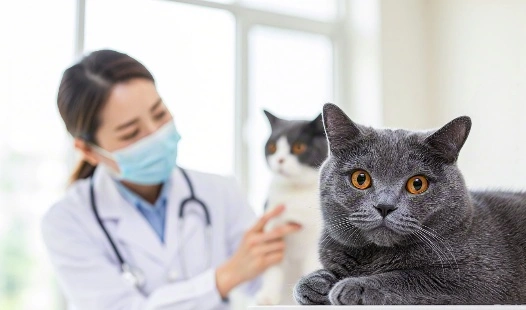
How to Choose a GS-441524 Brand and Supplier: 5 Key Factors to Consider
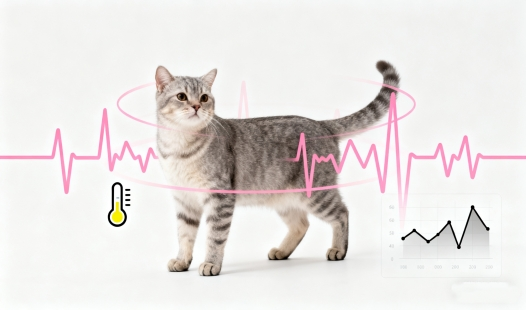
How is GS-441524 administered, and what are its side effects?
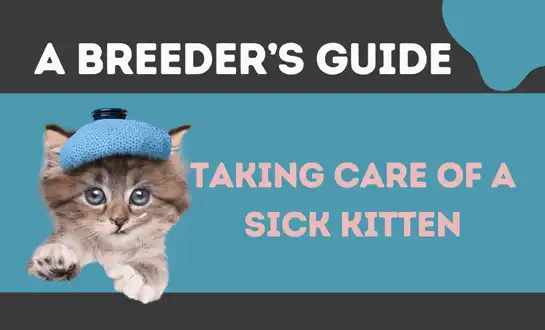
An FIP Cat's Treatment Diary: Tracking Changes Day-by-Day on GS-441524















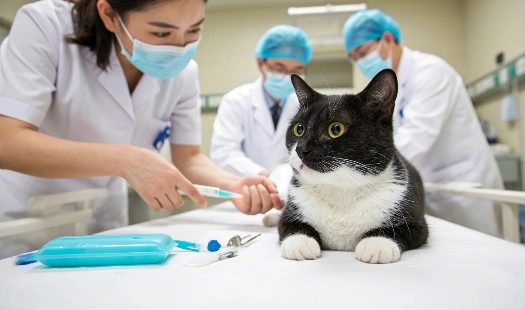
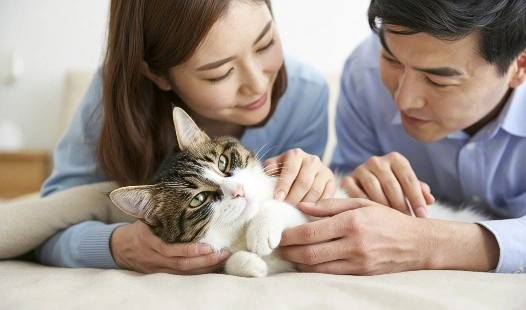
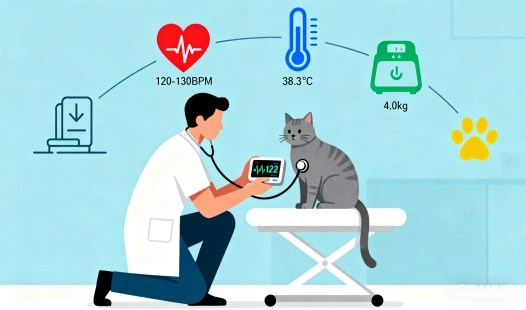
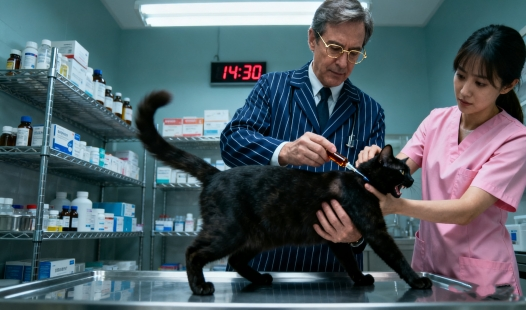
_副本_1758244779329.webp)
_副本_1757906640273.webp)
